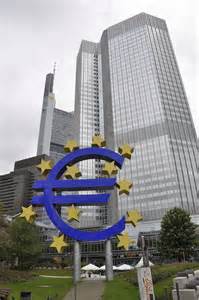
If euro zone inflation rises back to target more slowly than previously expected, the European Central Bank may need to cut its deposit rate further, although this is an open discussion, a top European rate setter said on Tuesday.
Real interest rates matter more for the economy than nominal rates and falling inflation expectations push up real rates, ECB Executive Board member Benoit Coeure said in Mexico City.
“If we see a risk that inflation would go back to 2 percent … in a much more sluggish way than would be previously expected … that may also mean an adjustment of the deposit facility rate,” Coeure said. “It’s an open discussion.”
The ECB earlier said its deposit rate, at -0.2 percent, hit bottom, though last week it raised the prospect of further cuts and markets are pricing in a reduction to -0.3 percent when the Governing Council meets in early December.
The tools the ECB uses will depend on the shocks it sees to liquidity or interest rates, Coeure told a conference of the Mexican Autonomous Technological Institute.
“We have different tools that we can use,” he said. “The reason why it deserves a discussion is we just want to be sure that we use the right instruments.
“If that is about interest rates, if that’s about liquidity … that’s the discussion we’re having,” he added.
Last week, ECB chief Mario Draghi said falling inflation expectations, driven in part by lower-than-expected demand for oil, have led the central bank to consider a wide variety of possible measures, including a deposit rate cut.
Draghi said the ECB’s governing council, which includes the executive board and the heads of the bloc’s 19 central banks, would be in a better position to make a decision once it gets new inflation forecasts from its staff in December.
The ECB first pushed its deposit rate below zero in June 2014, effectively making banks pay to park funds overnight at the central bank. Two months later, it was trimmed to -0.20 percent.
Before last Thursday, financial analysts’ core view was that the ECB would intervene in December or January to extend or expand its quantitative easing scheme, while few expected a deposit rate cut.
Analysts have warned that upping the pace of purchases could create a shortage of bonds down the line and that extending the scheme could require the ECB to change some of the rules of engagement to avoid hitting technical limits.